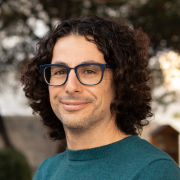16.06.2023 | 14:15 - 15:30
Guided-play environments have the potential to tackle common problems faced by science communicators and educators. How can we interest diverse groups in STEM topics? How can we reduce the barriers to accessing complex science? How do we create inclusive environments where we can build empathy and understanding?
The session will first introduce playful activities for learning and public engagement based on the above topics. This will be followed by a games arcade where participants will try out real world and digital games for science education and public engagement. Within science education, emphasis is on student-centred approaches with students constructing their own knowledge, while within public engagement the focus will be on creating agency and safe spaces for experimentation. The session will end with a reflection on these examples, how to evaluate them, and how participants can use these approaches in their own profession.
Outcomes: what will participants get from this session? Skills, knowledge, experience etc.
- To identify how to implement digital and physical games in different educational and public engagement settings.
- To critically reflect on the underlying learning models of science engagement games and to identify suitable approaches
- To identify guided-play environments’ potential to facilitate mutually beneficial interactions between researchers and society
- A greater understanding of co-design approaches for game-based activities and different methods for evaluation



